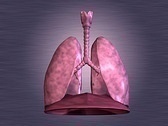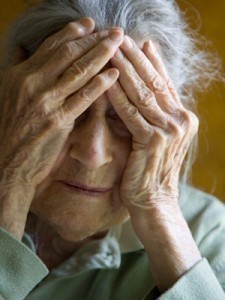Huntington’s Disease
Huntington’s disease is a neurodegenerative genetic disorder that typically materializes near middle age. In rare cases where the disease manifests in younger individuals the disease is usually more aggressive and maintains more pronounced symptoms. It generally affects people of European descent and is classified as a rare disease affecting only as much as 7 in 100000 people of European ancestry.
Causes of Huntington’s Disease
The cause of the disease has been identified as a mutated gene inherited from both or either parent of a disease stricken individual. The probability of acquiring the defective gene is 50% if one parent has the gene associated with the disease. This occurs because the gene is dominant therefore once a person receives one gene from a parent he or she will go on to eventually develop the disease. In rare cases where both parents may be affected or one parent has two copies of the gene then the chance of developing the disease increases to as much as 75% for any offspring.
Symptoms of Huntington’s Disease
The symptoms of the disease may be different among individuals. The development of the disease is usually progressive and generally slow. The intensity of the symptoms will depend on the extent of nerve cell loss. Death typically occurs up to 30 years after the onset of symptoms. The disease as mentioned previously may progress more rapidly in younger people.
The initial signs and symptoms of the disease normally includes:
- Decreased cognitive or mental abilities, for example inability to make difficult decisions, remembering certain bits of information, answering questions and absorbing new information.
- A generally decline in the ability to balance substantially.
- General clumsiness
- Involuntary facial movements for example grimacing uncontrollably
- Personality changes for example irritability or moodiness, loss of interest, anger and depression
The symptoms may be more noticeable to others than the individual themselves in the initial stages of the condition.
Later signs and symptoms of the disease include:
- Extreme problems with balance and coordination
- Jerky and rapid movements of the eye
- Sudden or unexpected involuntary movements (chorea) that may affect any area of the body
- Dementia
- Problems swallowing
- Changes in speech which may be described as hesitant, slurred or halting speech
Young people who suffer from early onset Huntington’s disease will have signs and symptoms that imitate those of Parkinson’s disease and may include the following:
- Tremors
- Muscle rigidity
- Slow movements
- Seizures
Treatment
There is no treatment for the condition and inevitably once the symptoms begin to appear an individual will continue to experience mental and physical disabilities for life. The type of medications used will be administered for management of the symptoms but will not reverse the effects of the disease and degeneration of the nerve cells. Drugs such as Tetrabenazine (Xenazine), tranquillizers like (clonazepam) and anti-psychotic drugs are used to treat the symptoms of the disease.






